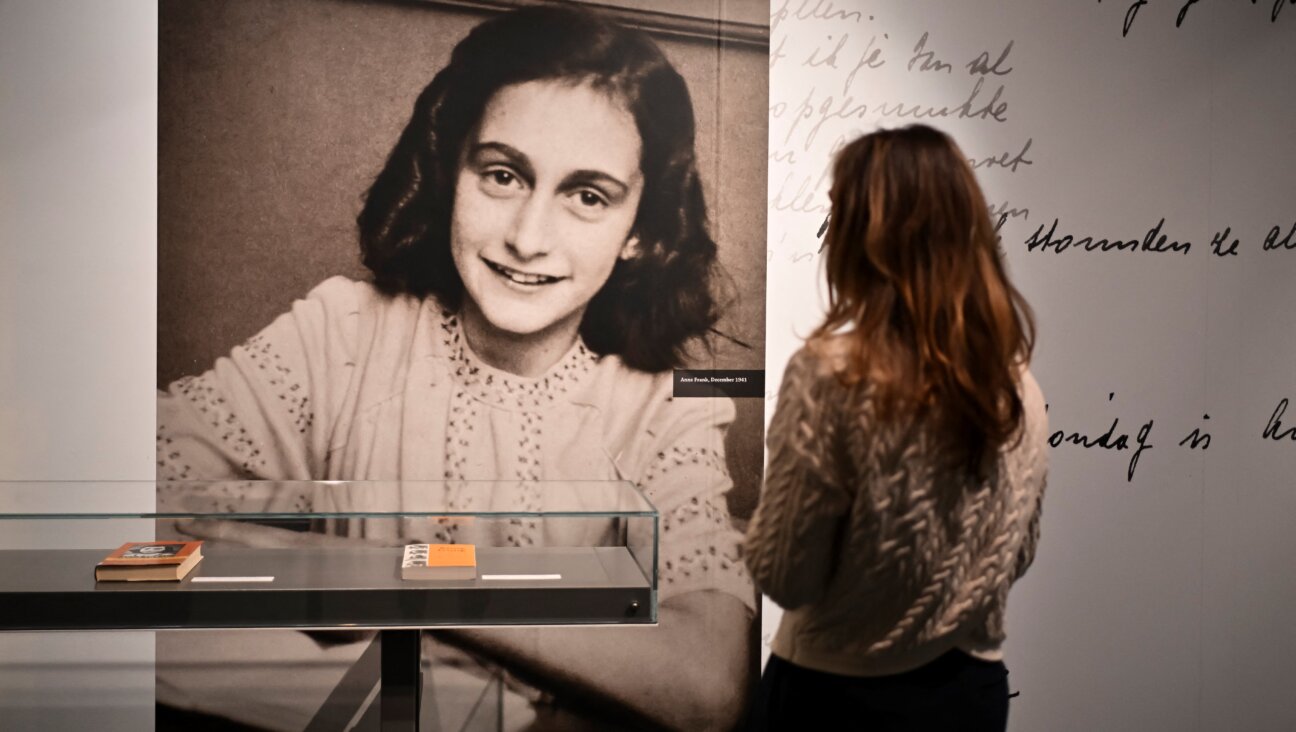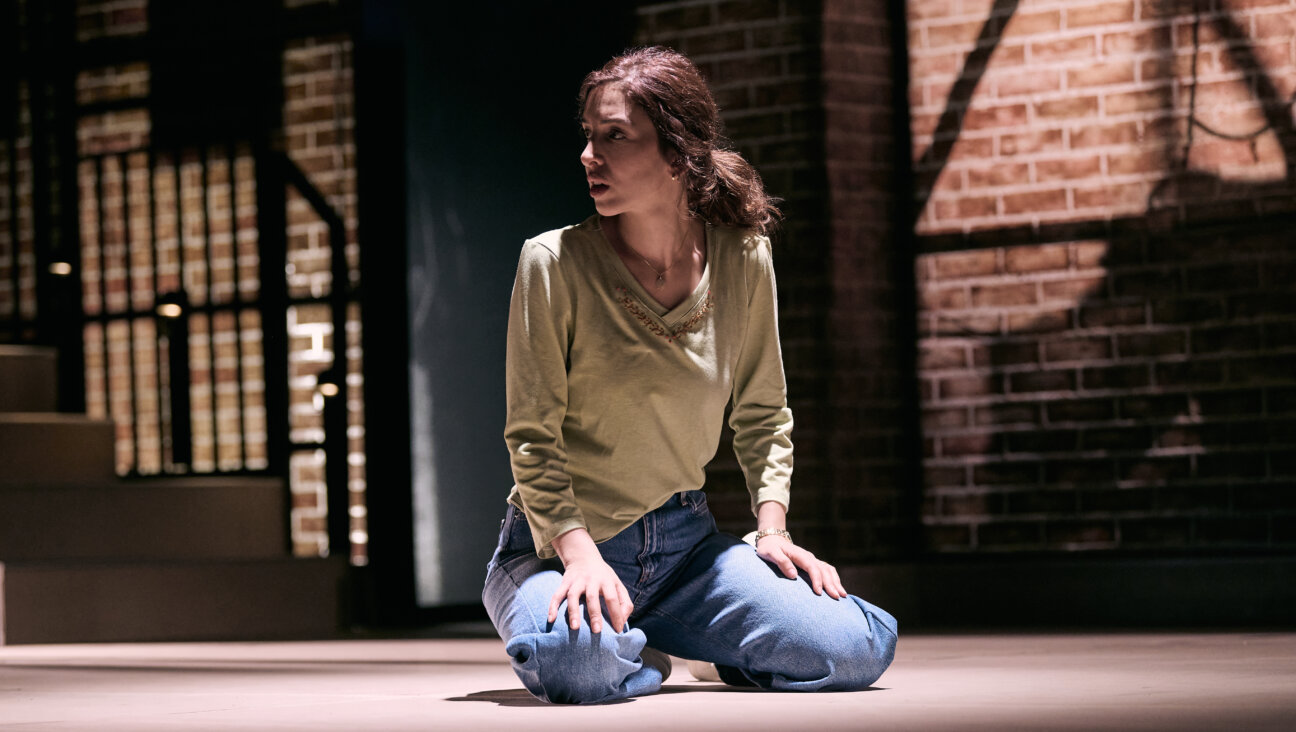Survival Ode: Fred Wander’s Wartime Story
The Seventh Well
By Fred Wander
Translated from the German by Michael Hofmann
W.W. Norton, 192 pages, $23.95.
Fritz Rosenblatt was born in 1917 to Yiddish-speaking immigrants in Vienna, and died as Fred Wander in Vienna in 2006; his adopted surname was meant to describe the years in between. He spent his adolescence revisiting the sins of his father, who was a traveling salesman and so, mostly absent. Proving too much for his mother alone, Wander fled her and the Anschluss for Paris; the fall of France found him living and writing on the rue St. André-des-Arts. In his memoirs, not yet published in English but already a German classic, he claimed for himself an ahasverisches Selbstverständnis, a pet phrase translating literally to an “Ahasver-like self-image,” after Ahasverus, the Wandering Jew who taunted Jesus on the way to Crucifixion.
Between 1939 and 1945, Wander was interned in a score of camps in France, Germany and Poland. This Dantean tour of a univers concentrationnaire, chronologically obscured in the author’s only novel, “The Seventh Well,” deserves a voice: In the beginning, there was a muster in the Stade de Colombes, followed by stints at Meslay-du-Maine, Angoulême, Périgueux, Toulouse, Saint-Antoine, Gurs, Le Vernet, Les Milles, Saint-Cyprien, Argelès-sur-Mer, Lager Agde, Montpellier, Lager Sete, Abbaye-de-Valmagne, Rivesaltes and Drancy (I’m missing a few, perhaps; unsure as to where, or when, Perpignan fits in)… then Auschwitz, from which Wander was marched to Gross-Rosen, from which he was marched to Hirschberg, over the Riesengebirge (“Giant Mountains”), then Buchenwald, from which he was liberated by the Americans in April 1945. After two months of recovery from tuberculosis and spotted fever in the camp hospital, Wander returned to Vienna in June to find that his entire family (save a brother) had been murdered in Auschwitz or Sobibor.
“The Seventh Well” is the episodic yet epic story of Wander’s wartime survival. When the book was first published, in East Germany in 1970, it was, much like Primo Levi’s debut in Italy, ignored. Politics and public sentiment played roles in the neglect of both, no doubt; the greatest reputations of postwar Jewish writers have been made, and will continue to be made, in America. A successful German republication of 2005 made this edition possible (Wander’s memoirs, “Das Gute Leben,” un-ironically “The Good Life,” were published in a new edition at the same time). Now, in a translation by Michael Hofmann, English readers
have access to this stylistically ambitious record of the Holocaust, comparable to — and, at times, extraordinarily similar to — the most artfully refracted fictionalizations of Israel’s Yehiel Dinur (who wrote under his Auschwitz number, 135633), and France’s Charlotte Delbo.
Wander’s structure, like Dinur’s and Delbo’s — and like concentration camp life itself — is miscellaneous, makeshift: Each chapter (titled with names, “Karel,” “Pepe” and “Joschko and his Brothers”; or nouns “Bread,” or provocations, “How to Tell a Story”) recounts the stories of and around one person, one individual concretized from Nazi number, encountered in Wander’s wandering. The theme throughout this all-slough “The Pilgrim’s Progress” is that of humanity in the midst of inhumanity: “Every wagon was being pulled by twenty or thirty groaning Jews. Breath froze in tiny crystals. A few sang, others cried, swore, prayed — no one paid them any attention in the general noise. Lubitsch declaimed French poetry.” What verses might best accompany a biblical “Flight From Auschwitz”? Baudelaire’s “Litanies de Satan” (“Satan, at last take pity on our pain”), and “Cain et Abel” (“Race of Cain! your guts howl out/in hunger, like an ancient hound”). Later, in Block 16 of Buchenwald, “they debated the complicated relations between Volkonsky, Rostov, and Trubetskoy in ‘War and Peace.’” Good Europeans to the last, Wander’s fellow prisoners attempt to recite from memory entire scenes from “Hamlet” and “King Lear,” pausing only to argue as to “whether Cousin Pons or Colonel Chabert was the more successful repository of Balzac’s own sense of failure and resignation.” Between the acts, as it were, a Hasidic orphan named Tadeusz Moll recites kabbalist tracts, and a prisoner known only as Antonio (whom the narrator, unnamed but certainly Wander, had come across before, at Drancy) sings “Addio, Amore,” from Puccini’s “Turandot.”
Interlarded with the Christological salvations of culture are memories of the past, most movingly those of the eternally secular Jerusalem, which is Paris: “A lousy lane, the rue des Rosiers, where Moishe Kuhn sells fish and Chaim Silberstein sits outside his basement and nails shoes, and the old junk dealer Jitzchok Lemberger bundles old paper.” Wander can’t help but remark of his hagiographical Marais, “What a Jewish quarter like that is capable of producing! It’s like a hothouse, stifling, rich humus, wild shoots, but also rare blooms: a mathematician, a doctor, a virtuoso, a poet….”
Though translator Hofmann is himself something of a virtuoso or poet, neither he nor Wander is served by an American edition that refuses to purge the British, and the dated, from his slang: Talk of a “young whippersnapper,” a “scallywag” and “a dab hand” at music-making, a “hurly-burly” struggle and especially “jackboots” (British for “Nazi”) does nothing to engage the American reader, nor does it contribute in rendering Wander’s horror more immediate. It should be noted that the original throughout is workaday German.
While such language might be Hofmann’s effort to preserve the book’s historicity, the reader has been estranged — by Wander’s obsession with European culture in the midst of a murder that was European culture, too; perhaps its last errant trickle, a font no longer giving Goethe’s poetry but Buchenwald’s blood. What a more peaceable humanity would require, Wander implies in his book’s title, is a higher spring, or religiously repristinated source; offering us in epigraph the messianism of Rabbi Loew of Prague’s 16th-century “The Seven Garlanded Wells”:
“The seventh well — water of honesty,
Cleansed of all impurities;
Proof against defilement;
Of stainless transparency;
Prepared for future peoples,
That they may emerge from the darkness,
With clear eyes and free hearts.”
Joshua Cohen is a literary critic for the Forward.
A message from our Publisher & CEO Rachel Fishman Feddersen

I hope you appreciated this article. Before you go, I’d like to ask you to please support the Forward’s award-winning, nonprofit journalism so that we can be prepared for whatever news 2025 brings.
At a time when other newsrooms are closing or cutting back, the Forward has removed its paywall and invested additional resources to report on the ground from Israel and around the U.S. on the impact of the war, rising antisemitism and polarized discourse.
Readers like you make it all possible. Support our work by becoming a Forward Member and connect with our journalism and your community.
— Rachel Fishman Feddersen, Publisher and CEO























